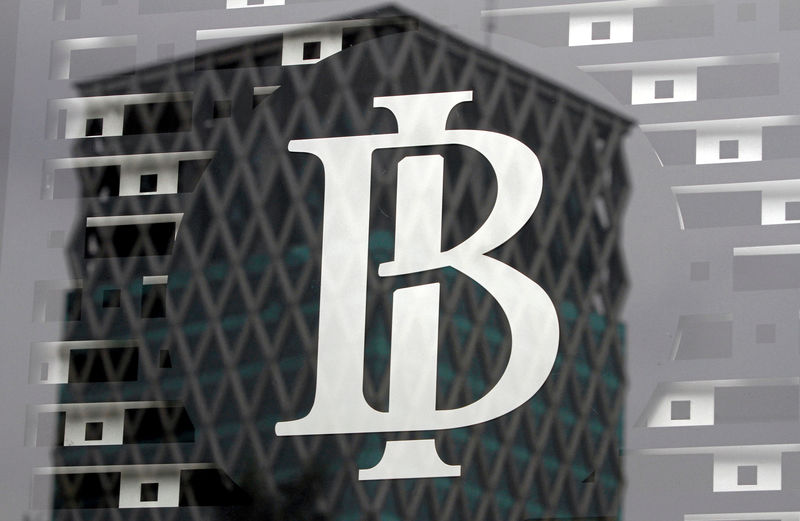JAKARTA (Reuters) - Indonesia's central bank will keep interest rates on hold on Thursday, a Reuters poll showed, though some economists say a rate cut to bolster economic growth is coming - and one sees a possible trim next month.
All 23 analysts in the poll predicted Bank Indonesia (BI) will hold its 7-day reverse repurchase rate at 6.00 percent, where it has been since hikes of 175 basis points (bp) between May and November 2018 to defend the then-ailing rupiah.
A slowing global economy and halt of U.S. Federal Reserve policy tightening have shifted rate cut expectations in much of Asia to probable from possible.
Indonesian central bank officials have noted that a steady rupiah, backed by strong capital inflows and benign inflation, support policy easing, but say a narrower current account deficit is needed before rate cuts.
Surprise trade surpluses in February and March have made some economists anticipate a loosening cycle.
Six of the seven analysts in the poll who gave views on the year-end expected lower rates then.
ANZ's Krystal Tan has pencilled in two 25-bp cuts.
"The conditions for BI to unwind its earlier rate hikes are finally starting to come together," Tan said.
"Any signs of a dovish pivot in BI's policy messaging should open the door for a move as soon as May, followed by another in August," she added.
MINI-EASING CYCLE?
Bank of America (NYSE:BAC) Merrill Lynch economist Mohamed Faiz Nagutha expects BI to "commence a mini easing cycle and cut policy rates by 75 bps over June-August".
Citi economist Helmi Arman brought forward his forecast of a 25 bps rate cut to the third quarter, from the fourth, during which he expects another 50 bps in reductions.
But Antonius Permana of Bank Negara Indonesia cautioned that the current account gap may widen again in April-June, which could delay a BI cut.
However, Permana also noted that capital inflows may swell to comfortably cover any size of current account deficits, after unofficial quick counts for the April 17 election showed President Joko Widodo securing a second five-year term.
"Foreign capital inflows have the potential to grow bigger because the political uncertainty has subsided," he said.
Financial markets in Southeast Asia's largest economy surged when they opened a day after elections last week, buoyed by news of Widodo's victory, though gains were pared in the afternoon. Markets were down on Monday.

Bucking the consensus, Fitch Solutions - a research affiliate of Fitch Ratings - said in an April 10 note BI could raise rates by 25 bps by end-2019, based on a prediction of higher inflation as a post-election rollback of subsidies.
(Polling by Tabita Diela and Maikel Jefriando; Writing by Gayatri Suroyo; Editing by Richard Borsuk)